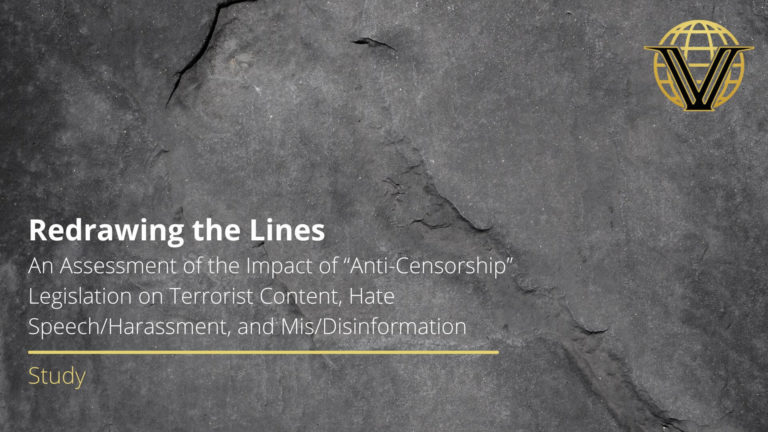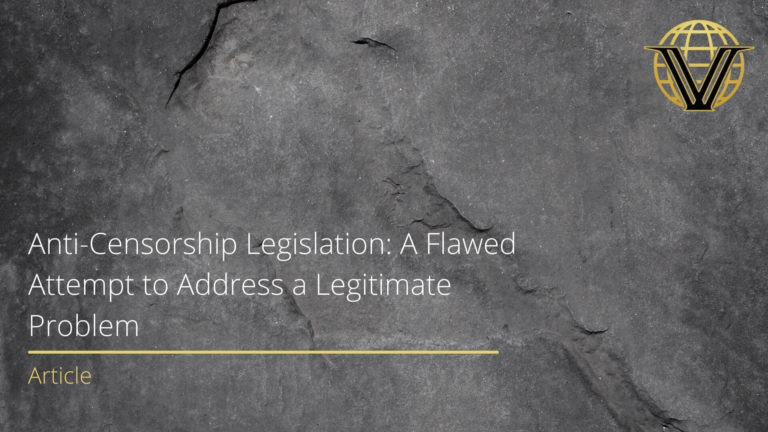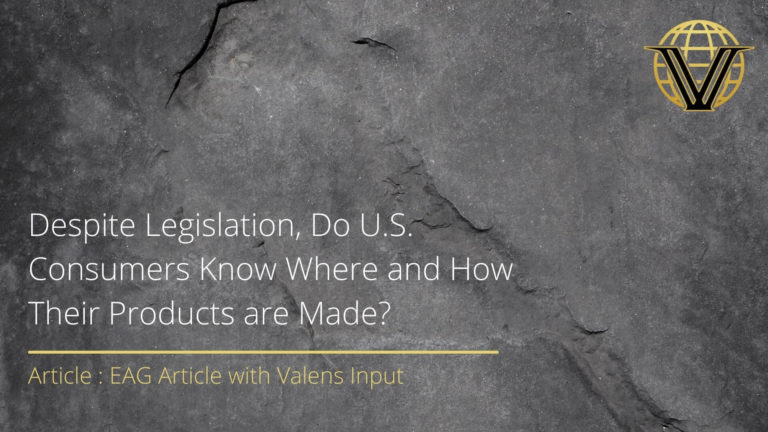Daveed Gartenstein-Ross and Varsha Koduvayur
Designating white supremacist groups as terrorist entities, as Australia has done, will be a key step to fighting the threats they pose. Designations allow governments to curb the groups’ operational capabilities by making it illegal to give them money or any other material support. Designations have been a primary means of combatting terrorism in the past two decades as Washington focuses on stopping the flow of terrorist financing.
Australian Home Affairs Minister Karen Andrews said the Base posed a “credible” threat to the country, and it was “known by security agencies to be planning and preparing terrorist attacks,” fulfilling the criteria for the group’s listing as a terrorist organization under the Australian Criminal Code Act. Earlier this year, media reports revealed the Base had plotted to expand into Australia and had targeted six Australian men—including a teenager—for recruitment, with the goal of starting a cell in the country. Mike Burgess, head of the Australian Security Intelligence Organisation, cautioned that Australians as young as age 16 were being radicalized to support a race war, a dynamic that could potentially provide the Base with fertile territory for its expansion plans.
The Base was established in 2018 by Rinaldo Nazzaro, a U.S. citizen living in Russia. Although the group has not carried out any attacks, its explicit goals make the dangers associated with the group clear enough. The Base’s ideology is accelerationist: The group aims to commit violent acts to foment a civil war, overthrow the current system, and ultimately establish a white ethno-state. Nazzaro, who goes by the pseudonym Norman Spear, has defended the use of terrorism to achieve the Base’s goals. In a June 2018 post on Gab, the social network associated with a far-right user base, he wrote “it’s only terrorism if we lose—If we win, we get statues of us put up in parks.” The group’s ideology is also overtly antisemitic; Nazzaro tweeted in 2018 that his goal was to “prepare for the armed struggle against ‘Z0G,’ [sic]” using the acronym for “Zionist Occupied Government,” a term often employed by white supremacists that reflects the belief that Jews secretly control the U.S. government. Nazzaro went on to state his mission was to free “our people from Z0G oppression.”
The Base’s members have undergone explosives and weapons trainings in so-called hate camps, located in the United States. They consider themselves hardcore survivalists, and the group emphasizes skills that can help them in what they see as the impending race war, such as survival tactics, weapons usage, guerrilla warfare, and more. Members regularly call for mass violence in their online communications. The Base has tried to create cells in several other countries and claims it has operations in Australia, Canada, and South Africa.
In October, two members were sentenced to prison for plotting to carry out an attack at a gun rights rally in Richmond, Virginia. In February, a member pled guilty for stirring up an intimidation campaign against Jewish Americans and Black Americans, during which he encouraged his online followers to vandalize property belonging to these two groups, calling it “Kristallnacht” in reference to the 1938 Nazi pogrom. Three other Base members were charged in Georgia for being part of a criminal street gang and for plotting to murder a couple they thought belonged to the far-left group Antifa.
Australia’s designation follows similar moves by Britain and Canada, both of which designated the Base as a terrorist group earlier this year. This means these countries can now deprive the group of access to their financial systems and prosecute people supporting the organization.
Australia’s move—and those by other U.S. allies—puts the spotlight on Washington. Why does the United States lag so far behind many other countries in cracking down on militant hate groups? Despite the presence of a deep, networked white supremacist movement on its soil, Washington has been slow to designate such groups as terrorist organizations. To date, the United States has imposed sanctions on only one white supremacist group: the Russian Imperial Movement, which was designated a terrorist organization in April 2020.
One limiting factor is U.S. law, which only allows for foreign groups to be labeled terrorists. The Base, for example, does not fall in this category since it is based in the United States. The prospect of congressional action to change the law and allow the designation of domestic groups is dim, and there is significant resistance from both sides of the aisle: Progressive Democrats are concerned anti-terrorism legislation could trample civil liberties while many Republicans worry such legislation could open the door to targeting people for their political views.
Germany offers an important precedent for legal change. After the 9/11 attacks, the country tightened loopholes in its laws that allowed terrorists to live and fundraise in Germany after the revelation that some of the 9/11 hijackers spent years living in Hamburg, plotting the operation from there. The change allowed Germany to prosecute terrorist activities even if the terrorists were members of foreign outfits that only operated outside of Germany and without direct involvement of German citizens. (In essence, it was the opposite problem: The United States shields domestic terrorists while Germany shielded foreign ones.)
Many commentators contend that current U.S. legislation is more than sufficient to counter white supremacist groups. If so, U.S. federal and state authorities should more aggressively use the current laws.
Indeed, several militant white supremacist groups could, in all likelihood, be designated terrorist entities without any changes to the law. These include Sonnenkrieg Division, a British-based group, and Feuerkrieg Division, founded in the Baltics with members in Europe and the United States. Both groups are foreign offshoots of Atomwaffen Division, a U.S.-based accelerationist group that advocates for a race war.
Other groups that could be designated terrorist entities under U.S. law include three British groups: the white power skinhead group Blood & Honour (B&H), its affiliate Combat 18 (C18), and the neo-Nazi group National Action. B&H has chapters throughout Europe, New Zealand, Australia, and the Americas. C18 has been called the “armed branch” of B&H and is responsible for murders and bombings. Another group that could potentially be designated a terrorist organization is the Nordic Resistance Movement (NRM), a Scandinavia-based group whose members have carried out bombings.
Close U.S. allies have taken steps against these groups. Britain has proscribed Sonnenkrieg, Feuerkrieg, and National Action under its anti-terrorism law; Australia has designated Sonnenkrieg, Canada has banned B&H and C18, and Finland has banned NRM.
This existing patchwork of proscriptions and designations would be significantly strengthened by similar moves from the U.S. State or Treasury Departments. If they used their designation powers more aggressively against white supremacist groups, it would boost intelligence coordination against these groups—especially among the Five Eyes intelligence-sharing allies (Australia, Britain, Canada, New Zealand, and the United States)—and help establish a more uniform baseline to raise global pressure for how countries counter these militant groups.
Designating these groups as terrorist entities would also have a material, strategic benefit. It would deprive them of access to the U.S. financial system. Further, by employing sanctions and raising surveillance, Washington would be better equipped to respond quickly to any future white supremacist attacks. Designations would also carry symbolic weight, particularly given the current dearth of U.S. designations against white supremacist groups.
One thing is for certain: Canberra’s designation shows how the Jan. 6 storming of the U.S. Capitol—where many of the insurrectionists donned military gear and white supremacist paraphernalia and were members of organized hate groups—and increased white supremacist attacks in recent years continue to reverberate around the world. Australia and many other countries know designations are an effective tool to counter the most violent and virulent groups. It’s time for Washington to recognize it too.



